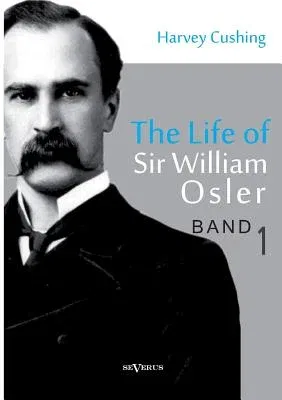Harvey Cushing
(Author)The Life of Sir William Osler, Volume 1Paperback, 26 January 2022

Qty
1
Turbo
Ships in 2 - 3 days
In Stock
Free Delivery
Cash on Delivery
15 Days
Free Returns
Secure Checkout
Print Length
700 pages
Language
English
Publisher
Severus
Date Published
26 Jan 2022
ISBN-10
3863474856
ISBN-13
9783863474850
Description
Product Details
Author:
Book Format:
Paperback
Country of Origin:
US
Date Published:
26 January 2022
Dimensions:
21.01 x
14.81 x
3.91 cm
ISBN-10:
3863474856
ISBN-13:
9783863474850
Language:
English
Pages:
700
Publisher:
Weight:
902.65 gm

